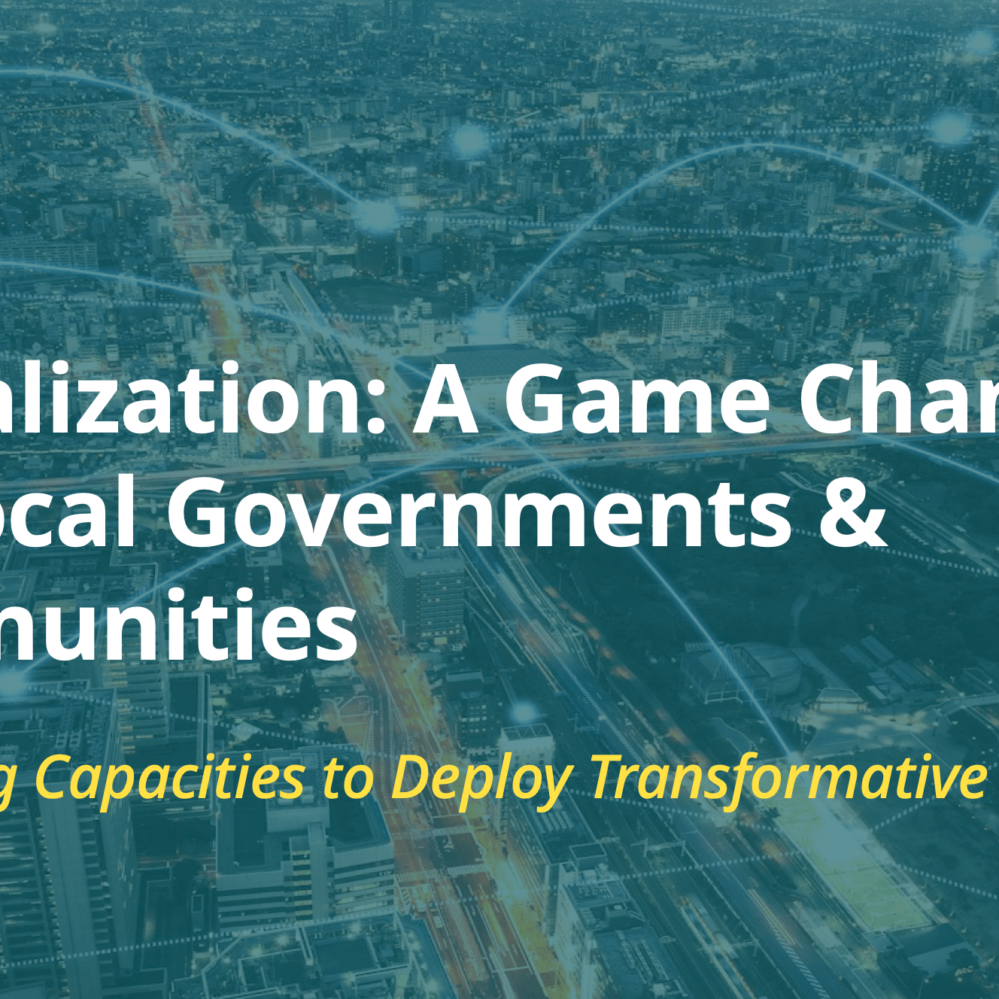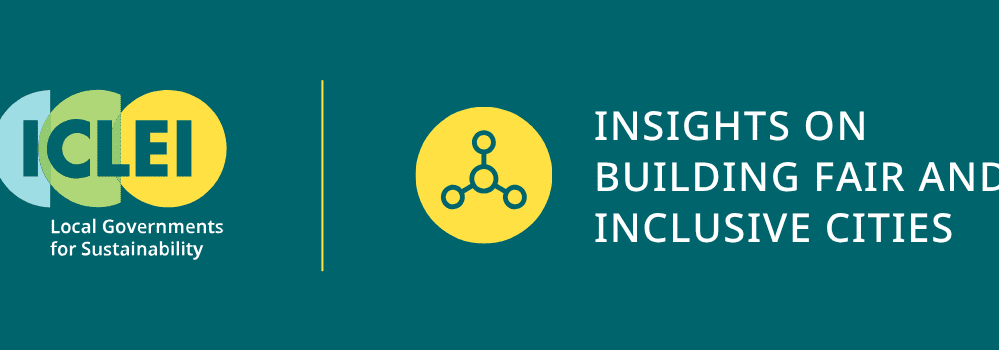The ICLEI carbonn Academy Series, and its flagship Green Finance Training Program, will equip participants with strategies to unlock finance for local action.
ICLEI officially launched its carbonn Academy Series at a Daring Cities 2025 Virtual Forum event on 16 July, attended by local leaders, finance professionals, and sustainability experts from around the world. The Academy will offer practical training programs for local and regional governments to unlock climate finance and accelerate sustainable action through proven tools, peer exchange and global best practices. The first training series will focus on green finance, with a spotlight on lessons from the Nordic model.
Speaking at the launch, Maryke van Staden, Director of the ICLEI carbonn Climate Center, spotlighted the urgency of equipping local governments with the skills and tools needed to turn climate ambition into implementation. “Green finance is no longer a nice-to-have. It is an essential lever to scale action, attract investment, and deliver climate resilience in real time,” she said.
Practical knowledge for real-world needs
The ICLEI carbonn Academy Series was created to provide hands-on learning opportunities for city officials, regional governments, and other stakeholders working at the subnational level. The Academy’s mission is to build institutional and technical capacity in areas such as climate mitigation, adaptation, and integrated planning through modular training sessions, access to tools, and structured peer-to-peer learning.
The goal is to help subnational leaders navigate sustainable financing processes, facilitate dialogue and connection with investors and industry experts, and support local just transition strategies that align with international standards for green and sustainable finance.
“We are not just transferring information. We are creating a space where local governments can learn from successful approaches and adapt them to their context,” said Natalia Salazar, ICLEI’s Head of Innovative Finance. She then introduced the first Academy’s course: The Green Finance Training Program, inspired by the Nordic model.
What is the Nordic model and why does it matter?
The Nordic model has emerged as a global benchmark for sustainability, successfully merging a strong welfare state with environmental ambition, collective action, and strategic use of market mechanisms. In the context of climate finance, the Nordic model offers subnational governments robust institutional support, building an enabling framework for long-term resilience and inclusive governance.
At the event, Claes Ramel, Head of Finance at the City of Malmö, highlighted the key elements for municipalities to access capital markets to raise funds for sustainable infrastructure. He outlined Malmö’s use of credit facilities, capital market programs, and partnerships with institutions such as the European Investment Bank.
Malmö’s green and social bond programs follow clear sustainability criteria and include annual impact reporting. Ramel stressed that transparency and diversification are key to gaining investor trust. “This dialogue with investors strengthens our funding base. It also improves how we measure, report and communicate our progress,” he said.
From the banking sector, Remus Pușpan, Sustainability Lead from Nordea Bank, described how financial institutions are adapting to the sustainability transition. He introduced the bank’s “climate maturity ladder,” a tool used to assess how ready clients are to access sustainable finance based on their climate goals, data, and reporting practices. “Banks need to understand what local governments are trying to achieve. This understanding helps us design the right financial instruments, including green loans, sustainability-linked bonds, and blended finance packages,” he said.
The Academy’s Green Finance Training Program will feature sessions tailored to different knowledge levels and regional contexts. Cities will learn how to design investment-ready projects, access capital markets, engage development banks, and work with blended finance instruments.
Participants will also explore how to embed equity and climate justice into financing models, building on real examples such as sustainability-linked bonds from Helsingborg, Sweden, which address both emissions and youth unemployment.
The full program will be rolled out starting in January 2026. ICLEI encourages local governments, utilities, and development partners to join the upcoming Academy sessions. Registration will open in late 2025. For more information, contact [email protected]





